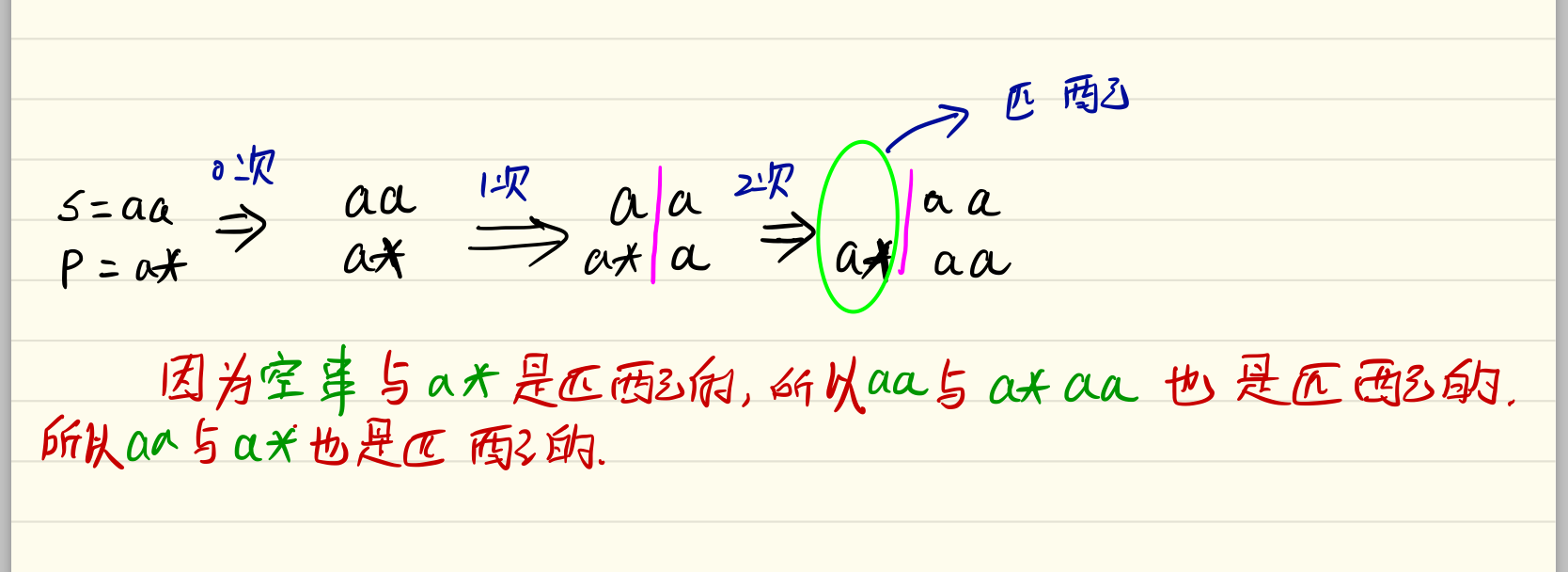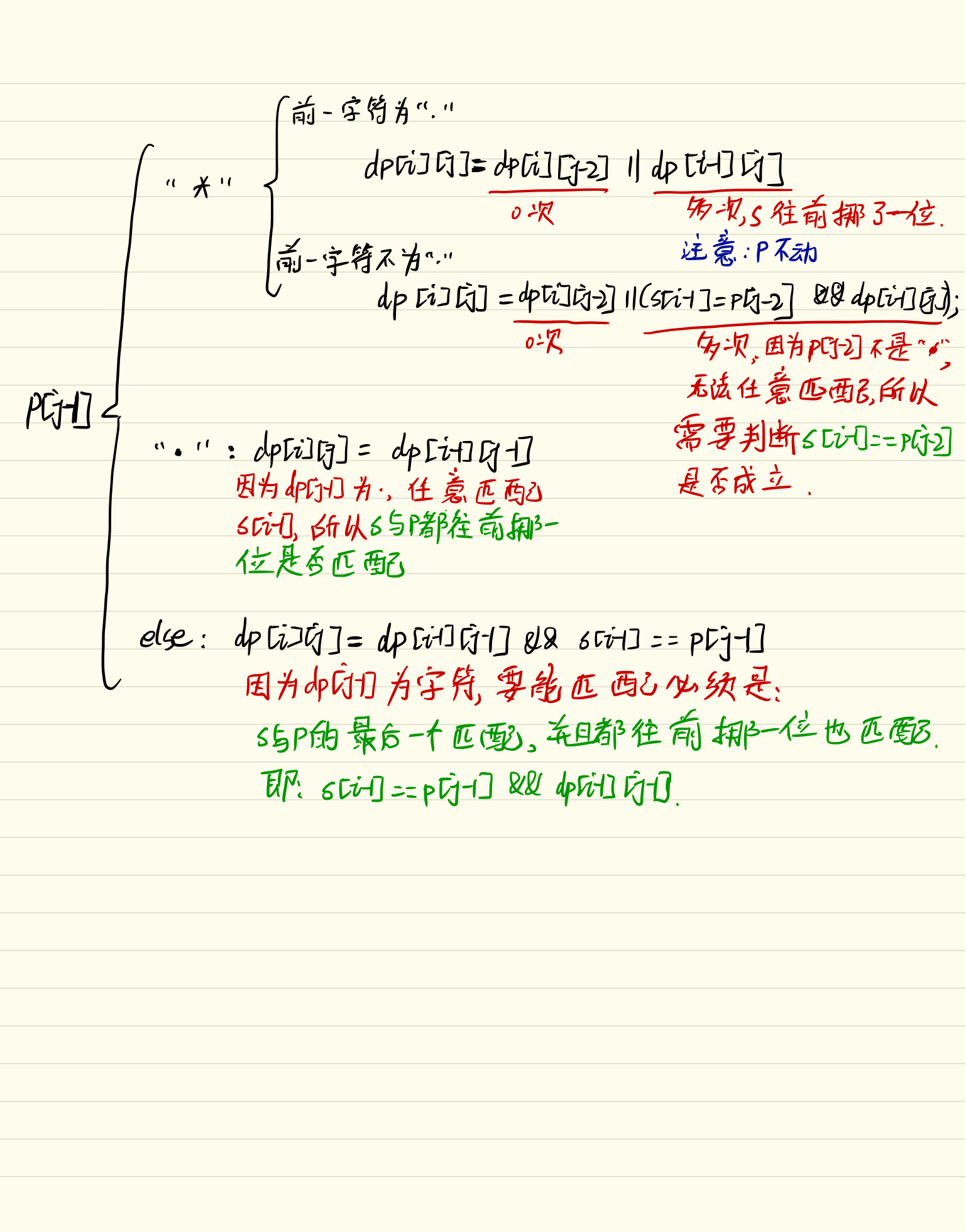Implement regular expression matching with support for
'.'and'*'.
2
3
4
5
6
7
8
9
10
11
12
13
14
15
16
17
> '*' Matches zero or more of the preceding element.
>
> The matching should cover the entire input string (not partial).
>
> The function prototype should be:
> bool isMatch(const char *s, const char *p)
>
> Some examples:
> isMatch("aa","a") → false
> isMatch("aa","aa") → true
> isMatch("aaa","aa") → false
> isMatch("aa", "a*") → true
> isMatch("aa", ".*") → true
> isMatch("ab", ".*") → true
> isMatch("aab", "c*a*b") → true
>
题意:正则匹配,判断p是否匹配s。其中’.’匹配任意单个字符,’*’匹配0个或多个的前一字符。
其实前两个月就刷了这道题,当时虽然也看了题解但是并不能很好理解,甚至看不懂题目的匹配原则。正值昨天浩博来问,发现大体能看懂,就昨晚再重新推导并重写了下代码,AC了。
首先定义状态:
1 | dp[i][j] := s串的前i个字符和p串的前j个字符是否能匹配 |
先初始化dp表,处理当s为空串的情况。
1 | dp[0][0] = true;//都为空是匹配的 |
接下来就是推导状态转移了!状态转移的推导主要是根据模式串(p)的最后一个字符(p[j-1])来决定的。这里我们先看一下这个比较烦人的‘*’号。
1 | ‘*’代表前一字符可以重复0次或者多次(>=1)。 |
怎么处理好重复多次应该是这道题最难的地方,根据Discuss里的大佬的提示,可以做如下的处理:
- 假设‘*’的前一个字符为a,即‘a*’
重复0次
最好处理了,只需要判断p串里a符号前的子串能否匹配s串 => dp[i][j] = dp[i][j-2]
重复多次
用了一个技巧,把模式串变成了a*a,这样只需要判断:
- s串的最后一个字符是否和a相等
- 判断dp[i-1][j]是否为true(即,s[0,1,2,3,…,i-2]是否与p[0,1,2,…,j-1] 匹配)
下面用s = “aa” 以及 p=”a*“ 推算一下“*”是怎么匹配两次的。

搞明白“*”的多次匹配之后,接下来就进入正式推导了,dp[i][j]的取值主要看p串的最后一个字符(即p[j-1])。

Code:
1 |
|